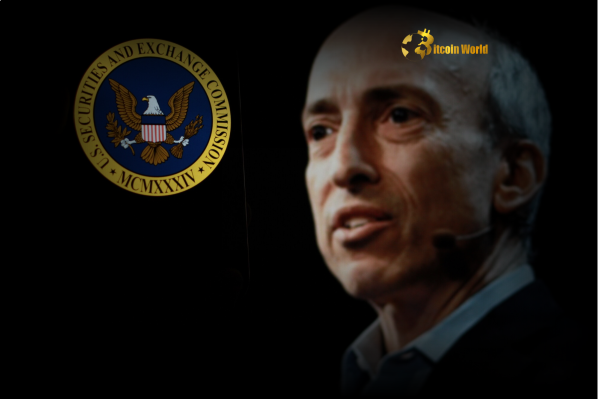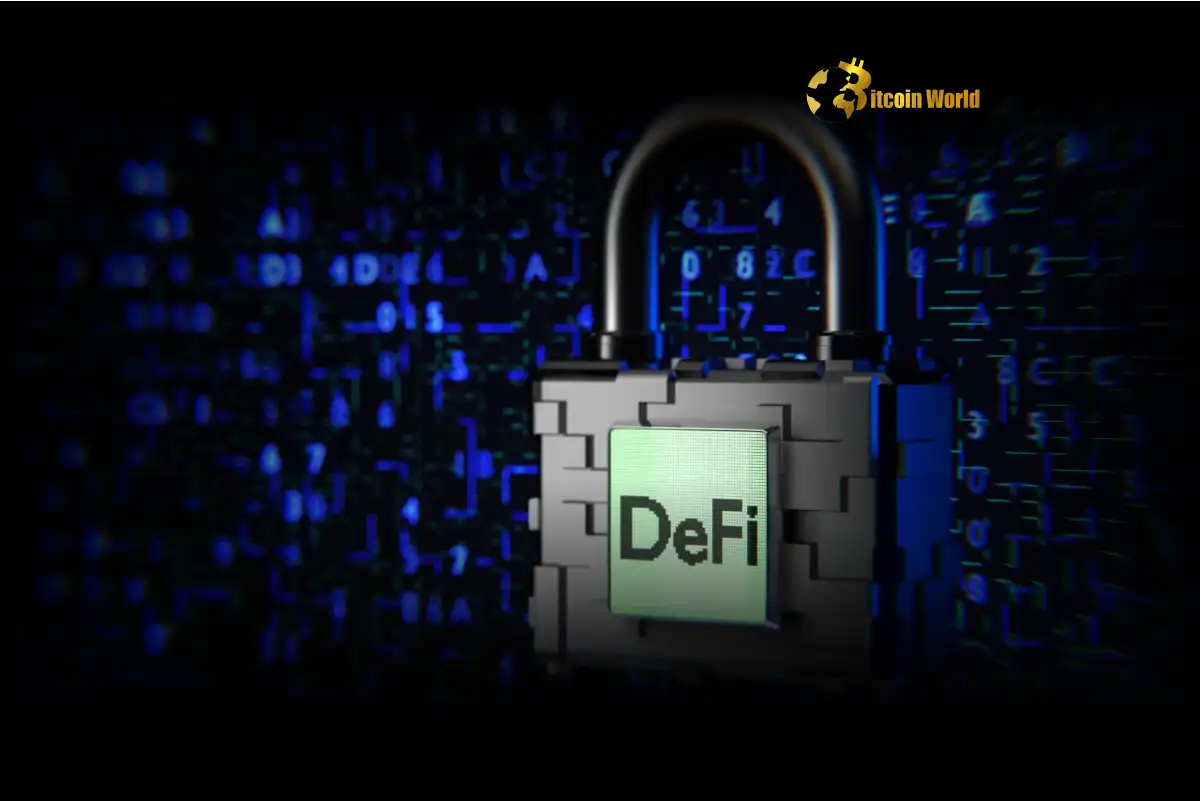BitcoinWorld

US SEC Abandons Key Gary Gensler-Era Crypto Regulation Plans
Big news shaking up the crypto world! The US SEC has reportedly decided to scrap some significant regulatory proposals that were on the table, particularly those related to SEC crypto regulation under former Chair Gary Gensler’s tenure. This move could signal a notable shift in the regulatory landscape for digital assets in the United States.
What Proposed Rules Did the US SEC Drop?
According to Eleanor Terrett, a host of Crypto in America, the US Securities and Exchange Commission (SEC) has officially ditched several major proposals that had been introduced during Gary Gensler’s time as Chair. This isn’t just minor tinkering; these were rules with potentially wide-reaching implications for how crypto operates within the traditional financial system and for decentralized finance (DeFi).
Two key proposals stand out:
- The Expanded Custody Rule: This proposal aimed to broaden the definition of ‘custody’ and apply it to all client assets managed by registered investment advisers, including cryptocurrencies. The rule would have mandated that advisers keep client assets with ‘qualified custodians’. A major point of contention was whether certain state-chartered trust companies, which currently handle significant crypto custody, would still qualify under the stricter definition. This raised concerns about disrupting existing custodial relationships and limiting options for institutional investors looking to enter the crypto space.
- Rule 3b-16 (DeFi Regulation): This was perhaps one of the most controversial proposals for the native crypto community. Rule 3b-16 sought to amend the definition of an ‘exchange’ under the Securities Exchange Act of 1934. Critics argued that the proposed changes were so broad they could potentially sweep many decentralized finance (DeFi) protocols and platforms under the purview of being classified as national securities exchanges. This would have subjected them to stringent registration and compliance requirements designed for traditional centralized trading venues, which many felt were incompatible with the decentralized nature of DeFi.
Terrett also mentioned that the SEC has dropped its plan to require public companies to comply with stricter environmental, social, and governance (ESG) disclosure requirements, indicating a broader review or shift in the agency’s regulatory priorities beyond just crypto.
Why Were These Rules So Contentious?
Both the proposed crypto custody rule and the potential DeFi regulation via Rule 3b-16 faced significant pushback from the cryptocurrency industry, legal experts, and even some policymakers.
For the custody rule, the main concerns revolved around:
- Limited Qualified Custodians: The worry was that the stricter definition would disqualify many entities currently providing crypto custody services, creating a bottleneck and potentially driving crypto activity offshore.
- Impact on Institutional Adoption: Clarity and reliable custody are crucial for institutional investors. Uncertainty around the rule made it harder for traditional finance players to confidently engage with crypto assets.
- Definition of ‘Custody’: Applying traditional finance custody definitions to the unique nature of digital assets, especially self-custody or multisig arrangements, proved complex and potentially restrictive.
Regarding the proposed DeFi regulation:
- Incompatibility with Decentralization: Many argued that applying exchange rules (like know-your-customer requirements, market surveillance, etc.) to automated, permissionless DeFi protocols was technically infeasible and fundamentally misunderstood the technology.
- Stifling Innovation: The fear was that heavy-handed regulation would stifle innovation in the burgeoning DeFi space, pushing developers and users away from the US.
- Lack of Clarity: The broad language of the proposed rule left significant ambiguity about which protocols or activities would be covered.
The dropping of these proposals suggests that the SEC may have acknowledged the industry’s concerns, faced legal challenges, or perhaps is recalibrating its approach to regulating digital assets following changes in leadership or priorities.
What Does This Mean for SEC Crypto Regulation Going Forward?
The decision by the US SEC to abandon these specific proposals is widely seen as a positive development by many in the crypto community. It removes some immediate regulatory hurdles and uncertainties that were hanging over the market.
Benefits of Dropping the Proposals:
- Reduced Uncertainty: The immediate threat of these particular stringent rules is gone, providing some relief to crypto custodians, DeFi developers, and investment advisers dealing with crypto.
- Potential for Innovation: Removing the shadow of Rule 3b-16 could allow the DeFi sector in the US to continue developing without the immediate threat of being classified as traditional exchanges.
- Stability for Custody Providers: Existing state-chartered entities providing custody may breathe a sigh of relief, maintaining their current business models without immediate disruption from the federal level.
However, it’s crucial to understand that this doesn’t mean the end of SEC oversight or SEC crypto regulation. The SEC still views many cryptocurrencies as securities and continues to pursue enforcement actions against companies and individuals it believes are violating existing securities laws.
This move might indicate a shift in *strategy* rather than a complete withdrawal from the space. It could mean the SEC is:
- Considering alternative approaches to regulating crypto that are better tailored to the technology.
- Prioritizing enforcement actions under existing rules while it re-evaluates potential new rulemaking.
- Responding to feedback and legal challenges, recognizing that the proposed rules might not have been the most effective or legally sound path forward.
The tenure of Gary Gensler at the SEC was marked by a strong focus on bringing crypto within the existing regulatory framework, often stating that most tokens were securities and subject to SEC rules. While enforcement actions initiated during his time continue, the decision to drop these forward-looking rulemaking proposals could be interpreted in various ways – from a pragmatic response to industry pushback to a strategic pivot under potentially changing political winds.
Actionable Insights for the Crypto Community
What should market participants take away from this development?
- Stay Informed: While these specific rules are off the table, the regulatory landscape remains dynamic. Keep monitoring SEC announcements, enforcement actions, and any new proposals that may emerge.
- Engage with Policymakers: The industry’s collective voice likely played a role in the SEC’s decision. Continued constructive engagement with regulators and lawmakers is essential.
- Focus on Compliance (with existing rules): Dropping proposed rules doesn’t erase existing securities laws. Companies and projects should continue to assess their operations under current regulations and seek legal counsel where necessary.
- Innovate Responsibly: For DeFi developers, this offers a window, but it’s not a free pass. Building with potential future regulatory considerations in mind, focusing on transparency and risk management, remains prudent.
Conclusion: A Moment of Relief, Not the End of the Story
The news that the US SEC has abandoned significant proposals for stricter crypto custody rule and DeFi regulation, initially pushed during the tenure of Gary Gensler, is undoubtedly a moment of relief for many corners of the crypto industry. It removes some immediate threats that were perceived as potentially stifling innovation and disrupting established business models. However, this is not the final chapter in the story of SEC crypto regulation. The agency retains jurisdiction over many aspects of the digital asset market, and the conversation about how best to regulate this rapidly evolving technology will continue. This development simply means that these particular proposed paths forward have been closed, leaving the door open for potentially different approaches in the future.
To learn more about the latest crypto regulation trends, explore our article on key developments shaping SEC crypto regulation policy.
This post US SEC Abandons Key Gary Gensler-Era Crypto Regulation Plans first appeared on BitcoinWorld and is written by Editorial Team





